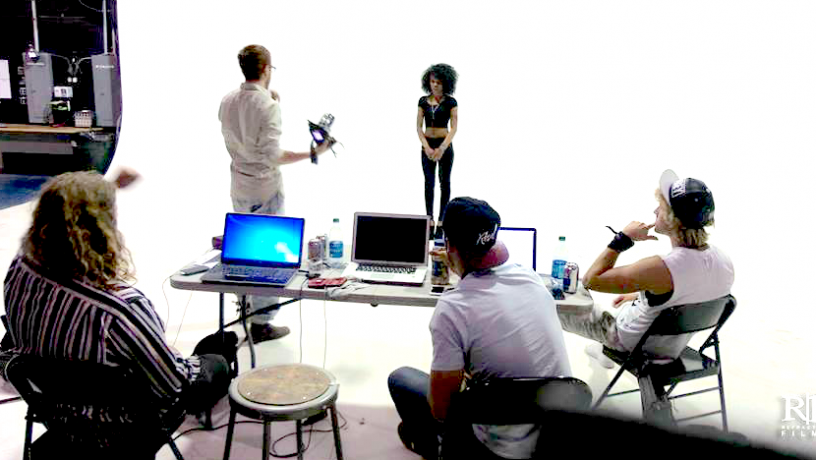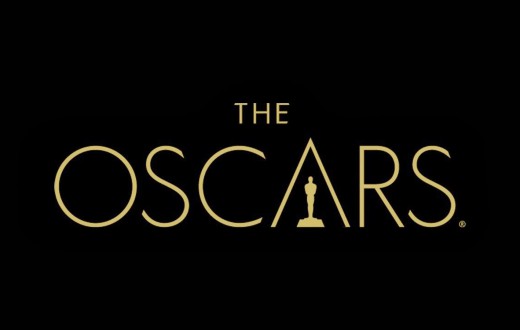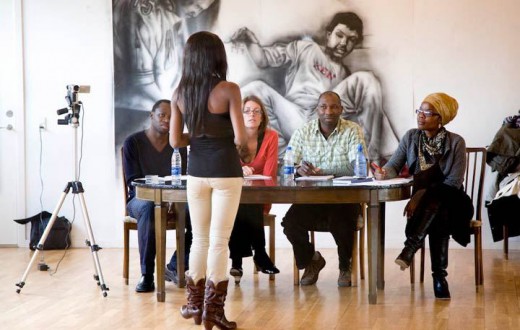Richard Jordan is a New York City-based casting director that has cast everything from viral music videos to commercials, voiceovers to indie films (and more). Although I’ve spoken to a few casting directors who were former actors, Mr. Jordan is unique in that he still works as an actor from time to time. Relaxed and informal, speaking to him during our FaceTime interview felt like talking to a friend who isn’t afraid to tell it like it is.
Do you have a favorite part of your job?
Telling an actor they got the job. You know what I mean? I like making the call myself. Especially someone who’s not famous, someone who I can tell really could use that job. I also like being able to be part of the creative process. And the fact that like for example, the whole Black Lives Matter thing, there have been at least three or four examples of projects where they were asking for a white person. And I showed them a person of color who they ended up going with. So that’s kind of fun, when I’m able to surprise them. It’s like they wanted that and I gave them this, and this was better. Because for me, it’s all about the best performance that embodies the spirit of the character. Sometimes for whatever reason, they have to be the race or sex that’s written, because it wouldn’t make sense otherwise, but sometimes it doesn’t matter as much or matter at all.
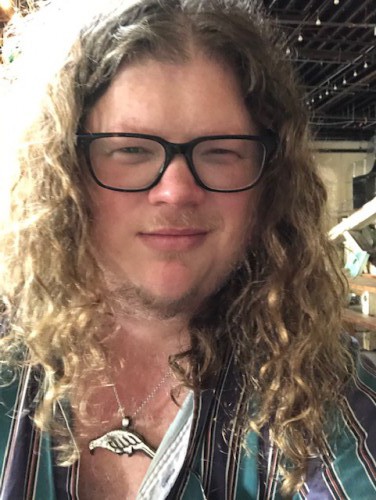 What has been one your biggest career highlights thus far (or more than one, if you’d like to share)?
What has been one your biggest career highlights thus far (or more than one, if you’d like to share)?
I mean, there’s little incremental things that come up. It’s funny because the first big music video I cast was for Nora Jones. There was supposed to be this huge scene in the Bowery subway. But she’d had a baby recently and didn’t want to be down there in the heat. And they had to change it last minute, literally the night before the audition. And they wanted an African American couple in their 60s-70s, dancing nostalgically in an old apartment. And so literally I had to cancel everyone that night, and then I had to get new people to come in the morning. So I got this couple, they weren’t even a real couple. They just happened to come in close to each other and it worked. And I was also casting a video for Bomba Estereo, which is one of the biggest bands in Columbia. And the budget was like so much lower. I was definitely more concerned with Nora Jones because I thought that’d be the bigger video. This one was about this little girl who kind of lets her freedom flag fly and stands up to her bullies. That’s one of the ones where they wanted a white girl, but I was like no, either Spanish or black, it wouldn’t make sense. And that video ended up being way more viral. It’s called Soy Yo, and it’s got over 90 million views. Teachers show it in their schools. But I just thought it’d be something that wouldn’t go anywhere. And I thought the Nora Jones video would be the big thing. I was literally working on both at the same time. As a matter of fact, I went from one set to the other because I like to make set visits.
Those both sound like amazing music videos.
And there was Matt Ferrell’s MFA project, from Columbia University. The way he described it to me was very hard to understand what it was going to be. It was like kind of a mockumentary, with four episodes. But the last episode was definitely not documentary style, it was a narrative. Like you’re watching acting, you’re watching a scene. So I had to cast all these interesting people along the way, and it turned out really well. And he was really great to work with. So that would be a career highlight too. I mean there’s big names and then there’s cool projects, you know what I mean?
You are a casting director who still sometimes works as an actor. Do you think being an actor helps you become a better casting director? And if yes how?
Yes. It takes one to know one.
[Laughs] Good answer!
But it takes a smart one. You know what I mean? It’s like, I definitely know all the sh** actors are trying to pull, especially on a lower level. I’m not casting Law and Order or anything, but I’m the step up. I cast stuff that lead people to bigger stuff. But I also cast SAG commercials. I might cast a SAG commercial that makes someone’s next few years. And then my next project might be some nonunion bullsh** that pays 300 bucks for the actor. When the pay looks smaller, actors might give excuses for auditions. But I know all that stuff. It’s not always about the money. It’s about the opportunity. I see big successful actors doing small little independent films when they feel like it’s going to be something good that they can do and enjoy. It’s not always about the money. So anybody who says like, “Oh, well it’s not enough money.” I’m like, you clearly don’t understand the opportunity yet.
According to the bio on your website (www.richardjordancasting.com), one of the things that set you apart is you will sometimes “go outside the regular channels to find people.” I found that really interesting. Can you give an example or two of this?
You mean my secrets?
[Laughs]
I love casting real people. I enjoy discovering new people on the street. I love making non-actors actors, not like making them full actors, but it’s just fun. Or finding people that maybe are actors, they have a little bit of experience, but they don’t pursue it full time. It’s just a fun challenge.
So you’ve had a lot of success with that, just finding people on the street and they could actually act?
Well they can do what you need them to do. You know what I mean? Especially for commercials. You just need them to be them. It’s more about the look, the personality. To let that shine. You need someone who is confident enough to just be themselves. Have you seen Uncut Gems?
I have not, but I’ve heard good things about it, it’s on my list.
Well a lot of actors in that movie or enough of them are non-actors. Yeah, just kind of small little roles where they sort of play themselves. A lot of directors actually will cast their friends. If you’re a good director you can pull a decent performance out of most people.
Another thing you also said sets you apart is that you keep a positive vibe in the audition room. How are you able to do that if, say, the person you’re auditioning is really nervous?
Yeah. I just kind of understand. I put myself in their shoes. Like someone I think is a jerk and I don’t like them, I’m just gonna move them through real quick. I’m not going to give them anything. But if someone is nervous but I like them, because I think they have good energy, I think they might have a chance to have the role, I’ll be like, “Are you nervous?” Like, my goal is just to get them to forget about that sh**. I’ll just try to get them to calm down a little bit. Cause it takes a certain amount of time/confidence to get to that place where you go in and you don’t give a f***. It’s like going on that first date. And you’re able to be like, you know what, if this doesn’t work out, I’ll be fine. You know what I mean?
Exactly. Nothing is going to happen. Since you cast both theater and film- what is the biggest difference between auditioning the two?
Well, you’re not allowed to tape the audition for Equity rules. It’s more about your performance than the look, because in theater you’re so far away. There’s more of a suspension of disbelief. Whereas in film, we expect people to look more and sound more like the people that they look and sound like in real life.
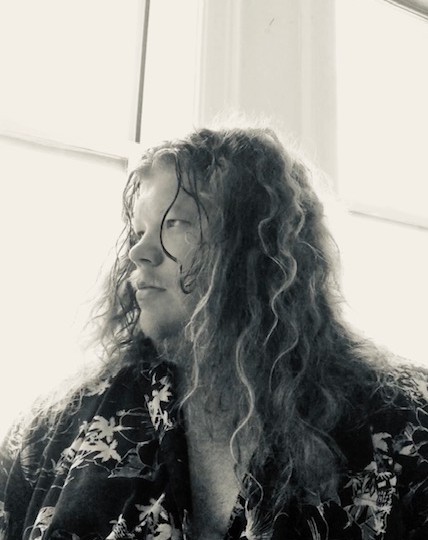 Since you work with both union and nonunion actors, is there enough work out there for nonunion actors?
Since you work with both union and nonunion actors, is there enough work out there for nonunion actors?
Yeah. I think that there’s more. I mean, there’s more lower paying jobs. It is a nice thing for a while. But I think don’t join the union until they make you. Because once you’re SAG, now you’re competing with celebrities. In theory. Even for series regulars and stuff, like not every celebrity is A-list, you know? There are people in the audition room that you might recognize. And they have a way better shot.
So actors should only join SAG when they have no choice but to join?
You need that experience on nonunion stuff to make mistakes on projects that don’t matter.
That’s such a good way to put it.
There are nonunion projects that are good. Treat each project like it’s a Scorsese movie. You know what I mean? Because even if it’s not, you need to practice.
Exactly. And just building your experience on smaller projects.
And your reel, and relationships. A lot of people on a set could hire you or recommend you. It’s like, this girl’s cool. That guy was cool. They were great. They were fun. I can’t wait to work with them again or write something for them. You know?
True, you never know what one project might lead to. Since you cast voiceovers- for actors interested but don’t know where to start, what are some important things for them to know?
Well they should practice. Before they do anything, they should practice reading and annunciating. And then they should go onto the radio and TV and listen to commercials. Listen to the voiceovers and see what they do. There’s definitely techniques. It’s its own thing, but you can do a lot more with it. You can be a lot more different characters. It’s not about looks. Also, you should still use your hands and your body in more or less the same way you would as the character, because we can hear the changes in your voice as your body moves up and down. Your energy changes. Behind the scenes of voiceovers, people are still going through the actions with their hands and body because that just makes them more in character.
It helps make it more real.
And then you need a reel. I would say you probably should take a class with someone reputable who gives you notes. And if there’s a reel involved with that class, that’s ideal. Taught by a casting director would be best, I would say voiceover casting directors specifically. But I’d say you need to have a good package and it helps, especially these days, to have a little studio at home, like a basic setup. You probably need to invest a couple hundred bucks, for starters, to get jobs and auditions. And if you don’t have that, then a quiet room. And use your iPhone. That can work for auditions.
You strike me as being a positive person. How have you managed to stay positive during the quarantine?
You learn in acting how you can choose emotions. And I really do believe that our emotions are choices. I think we feel, but then you choose to either explore that more or go in another direction. It’s like have you ever been crying? And the phone rings, you’re like, “Hello.” And then after talking to the person for five minutes, you’re in a totally different mood, and you forgot what you were upset about. So I think that our minds are very powerful, and we can choose to basically turn lemons into lemonade. It’s like, I just refuse to turn over and wallow in my sorrow. I just won’t do that. I cleaned out my entire room, wrote a short film about it. I f***ing got Masterclass. I’m giving Zoom classes and I’m like making sh**, I’m staying busy. An idle mind is the devil’s playground. So I just make sure I’m always doing stuff and I’m being positive. I choose to be positive. I feel a little negativity here and there but I don’t let it stay. I kick it right out. You know what I mean? Like I see it, I’ll feel it for a moment. And then I’ll turn it into something else. It’s basically self-control, you know? I don’t need anyone else. You gotta make yourself happy. At the end of the day it’s up to you, no one else can give you exactly what you need. No matter how hard they try. You’re the one who has to accept that. You have to love yourself. They say you gotta love yourself before you’re able to love anyone else.
—
Now that’s some positive parting advice. And because we sometimes went off-topic, he also asked me to include in the article that everyone should watch the dramedy series Baskets on Hulu with Zach Galifianakis because “the acting is so amazing.” A casting director who generously dispenses industry/life advice and also TV recommendations? Now that’s a casting director I want to listen to.

